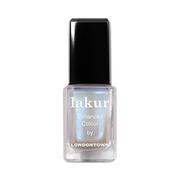Rosehip Oil: Vitamins, Skin Benefits & Uses
Rosehip oil has to be one of the most popular facial oils at the moment, alongside jojoba and argan oil - and for good reason. It even has a celebrity following, including Duchess Catherine and our very own Miranda Kerr loves rosehip oil - so what’s so special about it? Does it even smell like roses? Rosehip oil benefits skin in so many different ways - but first, let’s start with where it comes from.
What Is Rosehip Oil?

What is rosehip oil, anyway? Well, rosehips are the buds left behind after rose flowers shed their petals. Rosehips are considered the fruit of the rosebush, and can actually be harvested and used for a whole heap of different purposes - they can be made into rosehip tea, rosehip jam, or, my personal favourite, pressed into rosehip oil. It’s also sometimes called rosehip seed oil - they’re both the same thing.
Rosehips are always a bright orangey-red in colour, no matter what colour the rose bloom was. They owe their bright colour to the high levels of carotenoids, a type of antioxidant. These antioxidants are also what gives the oil it’s signature bright orangey-red colour. Carotenoids are also a form of previtamin A - not quite the same as Vitamin A, but still great for your skin.
In fruit form, rosehips have high levels of Vitamin C - however, it’s a myth that rosehip oil itself contains Vitamin C. Let’s head back to high school chemistry class for a second - remember the concept of like dissolves like? To put it simply, it’s the concept that oil can only mix with oil and water can only be mixed with water.
So, the Vitamin C found in Rosehips is L-Ascorbic acid - a water-soluble form of Vitamin C. Water cannot dissolve in oil - therefore, there’s no water-based Vitamin C found in Rosehip Oil. However, Rosehip Oil still has so many great benefits for skin - here are some of our favourites.
Inika Organic Enriched Rosehip Oil | $39
Inika blends the benefits of Rosehip Oil with Kakadu Plum and Lilli Pilli Seed oil for ultimate antioxidant protection.
What is Rosehip Oil Good For?
Rosehip oil benefits skin by being rich in vitamins and by having a unique oil profile. Each different plant oil has a different blend of fatty acids that determine the benefits and characteristics of each oil.
Brightening Sun-Damaged Skin
Rosehip seed oil has high levels of linoleic acid and alpha-linoleic acid - sometimes called omega-3 and omega-6, respectively. A unique characteristic of these specific fatty acids is their ability to lighten ultraviolet light-induced skin damage. It’s able to do this by suppressing excess melanin formation in the skin, brightening uneven skin tone over time.
Balancing Acne-Prone Skin
Levels of linoleic acid are also linked to breakouts - specifically, studies have consistently found that participants with acne were more likely to have lower levels of linoleic acid in their skin’s natural oils. It’s thought that by using a facial oil with higher linoleic acid levels, it balances out the oil composition of skin and may help to reduce acne.
Providing Antioxidant Protection
Rosehip oil skin benefits still include antioxidant protection without needing to have Vitamin C. Instead, rosehip oil is rich in a type of antioxidant called a carotenoid. These are easily recognisable for their bright orange colour - it’s the same type of antioxidant that makes carrots and sweet potatoes their signature orange shade.
Types of carotenoids found in Rosehip Oil include beta-carotene and lycopene - they act as a provitamin A, which means they convert to Vitamin A on the skin. As an antioxidant, beta-carotene is super-effective at protecting skin from harmful free radicals - molecules that can cause premature signs of ageing to pop up by damaging the skin.
Inika Organic Lip Serum | $39
This organic lip serum smooths and moisturises with a blend of rosehip oil and and shea butter for super-soft, kissable lips
Who Rosehip Oil Is Best For & How to Use It
In my opinion, one of the best things about rosehip oil is that it's great for every skin type - yes, even oily skin because of its high levels of linoleic acid. Alongside what makes rosehip oil unique, it still has all the other great properties of oils: soothing and moisturising skin.
Rosehip oil benefits all skin types - you can either use it as a final layer in your skincare routine or mix it with your moisturiser before applying. Pretty much all skin types can use it, day or night!
Need some help putting together the best skincare routine for your skin type? Try our skin quiz!
Products Mentioned:
















